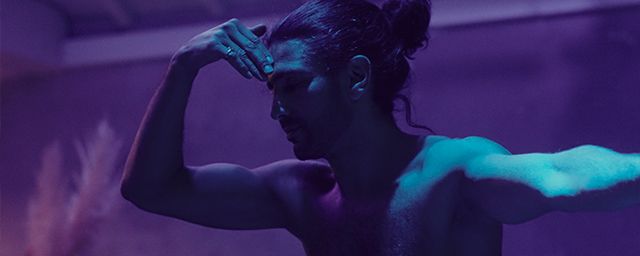Revealed by Abdellatif Kechiche in La Vie d’Adèle and Mektoub, My Love, Salim Kechiouche signs his first feature film. Currently in cinemas, L’Enfant du paradis is at the crossroads of the director’s life and that of his loved ones.
Broken portrait of a man with a thousand faces
After several years of addiction, Yazid finally sees better days when his acting career begins to take off. But for this man with a troubled past, whose family roots were cut too early, it is difficult to juggle his responsibilities as a father on the one hand and as a young fiancé on the other.
When your anxieties return in the form of buried memories, diving back into your old demons seems inevitable…
After becoming known to the general public for his role in La Vie d’Adèle (Palme d’Or at Cannes) and the diptych Mektoub, My Love by Abdellatif Kechiche, Salim Kechiouche distinguished himself on television in series hits such as Lupine or Braqueurs.
Without abandoning his status as an actor, with L’Enfant du paradis he took his first step behind the camera, as a director.
Copyright The 25th Hour
At the same time filmmaker, screenwriter and leading role, Salim Kechiouche brings to life a project so personal that it seems autobiographical. But is this really the case?
“It’s my life, but at the same time, it’s not mine.”
Although he is primarily known for his acting performances, Salim Kechiouche in reality returns to his original loves with L’Enfant du paradis: writing and directing. No wonder he chose such a personal subject for this first feature film.
The screenplay, which he co-wrote, seems particularly intertwined with his life and that of those close to him… without being autobiographical.

Copyright The 25th Hour
“The starting point was the death of one of my best friendssays the director, who was also an actor. […] I made this story my own, while distancing myself from it. I intertwined it with mine, much more strongly than I had initially imagined, by integrating personal archives. […] It’s my life, but at the same time, it’s not mine.”
Punctuated with very real sequences from Salim Kechiouche’s childhood, filmed on a camcorder, L’Enfant du paradis never ceases to question the relationships to origin, whether geographical, historical or familial.
A broken figure in search of reconstruction, Yazid seeks by all means to avoid confrontation with this abandoned past, despite the questions of his companion (played by Nora Arnezeder). These questions, and even more these lack of answers, are all linked to the same traumatic event: the death of the character’s mother.
“The death of the mother is the real subject of the filmcontinues Salim Kechiouche. The subject is so intimate that it becomes universal because everyone has lost someone dear to them. Everyone has experienced, directly or indirectly, this type of internal and family conflict. […]
It’s as if the dead came back into the film to say goodbye. Even if people don’t know it, the film is loaded with this deadly material.”
Passing from the status of actor to the hybrid status of actor-filmmaker, mixing his existence with that of his loved ones to achieve an almost universal experience of mourning, Salim Kechiouche signs with L’Enfant du paradis a great first film, to be discovered in theaters from December 6.
